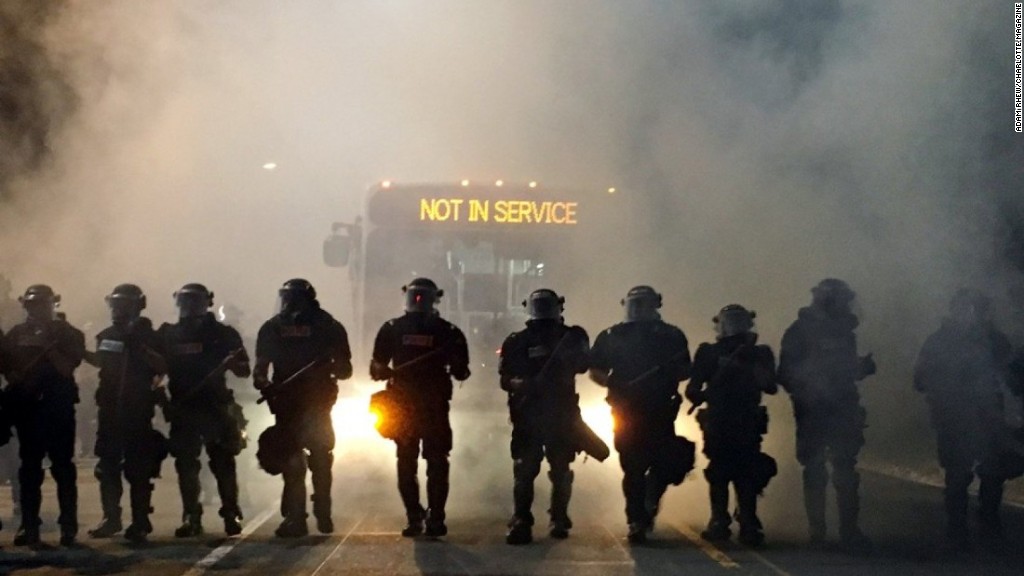
Charlotte is an economic powerhouse, a major banking center with a growing population and a better than average job market.
But that success masks difficult times for many people who live there -- especially its black residents, many of whom are struggling with much lower income and much higher unemployment and poverty rates than their white counterparts.
Racial inequality, poverty and segregation in housing and education "have relegated many residents to the sidelines" while the rest of Charlotte thrives, poverty researchers at the University of North Carolina law school said in a report earlier this year.
"Racial and economic divides attest to the reality that Charlotte's enviable growth is not widely shared," the report said.
Racial disparity in Charlotte is drawing renewed attention after violent protests this week following the fatal police shooting of a black man.
Governor Pat McCrory declared a state of emergency after a man at the protests was shot by another civilian Wednesday night. Four police officers were also hurt, none with life-threatening injuries.
The violence is "not reflective of our community," Mayor Jennifer Roberts said. "I want to emphasize that in Charlotte, we have a long tradition of working together to solve our problems."
Related: State of emergency declared in Charlotte after violent clashes
Still, broad inequality persists in how people live, work and learn in Charlotte.
The black unemployment rate in North Carolina was 10.3% last year, compared with 4.8% for whites, a wider gap than in the nation at large.
About 40% of black households in Charlotte have annual incomes of $30,000 or less, and a quarter live in poverty, according to the UNC report, which drew from census data. Less than 10% earn $100,000 or more.
The situation in white households is almost the opposite: Less than 10% live in poverty, while nearly 35% earn more than $100,000.
Related: Wage gap between blacks and whites worst in nearly 40 years
In Charlotte, "a racialized, concentrating poverty has led to the creation of some of North Carolina's most intense pockets of economic distress in the state's most commercially vibrant city," the UNC report found.
Charlotte is home to Bank of America (BAC). The metropolitan area has added 9,000 financial services jobs in the past decade, an increase of 12%. But manufacturing jobs are disappearing faster than banking is growing.
That shift has put an even greater emphasis on education, and people who live in Charlotte are better educated than average, statistics show. But there's a racial divide here as well.
About 40% of blacks in Mecklenburg County, which includes Charlotte, only have a high school degree, compared with 17% of whites.
Homes in Charlotte are relatively affordable. The median price is $171,500, according to Zillow, and home values have grown 7.5% in just the past year.
But blacks are missing out on much of that prosperity. The black homeownership rate in Charlotte is just above 40%, while nearly 70% of whites in the city own a home.
-- CNNMoney's Tami Luhby contributed to this report.


